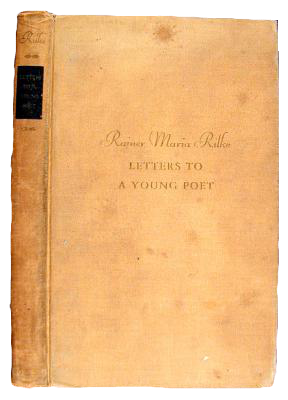Taking inspiration from the poet Rilke
Taking inspiration from the poet Rilke
Taking inspiration from the poet Rilke
-
Hannah
-
Hannah

Rilke in Moscow, 1928, by Leonid Osipovich Pasternak
In case you are not familiar with Rilke, here is a little background on him. Born René Karl Wilhelm Johann Josef Maria Rilke in 1875, he was a Bohemian-Austrian writer. Travel was a major influence on his writing: he visited Russia, Spain, Germany, France and Italy. On his journeys, he explored aspects of culture that deeply inspired him. He met the Russian writer Leo Tolstoy, for example, and acted as a secretary to the French sculptor Auguste Rodin.
Love was at the root of Rilke’s writing – and, indeed, his life. He had an affair with Lou Andreas-Salomé, friend of Nietzsche and Freud (it was she who urged him to use the name Rilke, because it sounded more powerful). He married the German sculptor Clara Westhoff, and had a passionate affair with Expressionist painter Lou Albert-Lasard.
In his final years, Rilke settled in Switzerland, living at the Chateau de Muzot in the commune of Veyras. By this time he had a patron – Werner Reinhart, who famously supported many composers and writers, notable among them Igor Stravinsky – and so Rilke was able to immerse himself in his writing.
He died in Switzerland in 1926, leaving behind a body of work that would inspire all the generations to come, especially the poetry collections Duino Elegies and Sonnets to Orpheus, and the semi-autobiographical novel The Notebooks of Malte Laurids Brigge. Most influential of all, though, is a collection of ten letters that was published posthumously: Letters to a Young Poet.

My own copies of Rilke’s works are covered with page markers for quotations that resonate with me. Here are just a few of my favourites on the subject of love:
‘We need, in love, to practice only this: letting each other go. For holding on comes easily; we do not need to learn it.’
‘To love is good, too: love being difficult. For one human being to love another: that is perhaps the most difficult of all our tasks, the ultimate, the last test and proof, the work for which all other work is but preparation.’
‘This is the miracle that happens every time to those who really love: the more they give, the more they possess.’
‘Believe in a love that is being stored up for you like an inheritance, and have faith that in this love there is a strength and a blessing so large that you can travel as far as you wish without having to step outside it.’
For my new novel, Concerto, one Rilke poem was particularly inspiring. Catriona and Umberto meet at the start of the book and are instantly attracted to one another. But after spending the night together, they become estranged. Ten years later they meet again, when Catriona is hired by Umberto’s mother to be his music therapist. In the intervening years, Umberto has thought of Catriona – and he has had much time to think, for an accident has robbed him of his sight. He can no longer see Catriona with his eyes, but does that mean he can no longer see her with his heart?
Here is Rilke’s beautiful poem, ‘I’ll Go On’.
Extinguish my eyes, I’ll go on seeing you.
Seal my ears, I’ll go on hearing you.
And without feet I can make my way to you,
without a mouth I can swear your name.Break off my arms, I’ll take hold of you
with my heart as with a hand.
Stop my heart, and my brain will start to beat.
And if you consume my brain with fire,
I’ll feel you burn in every drop of my blood.